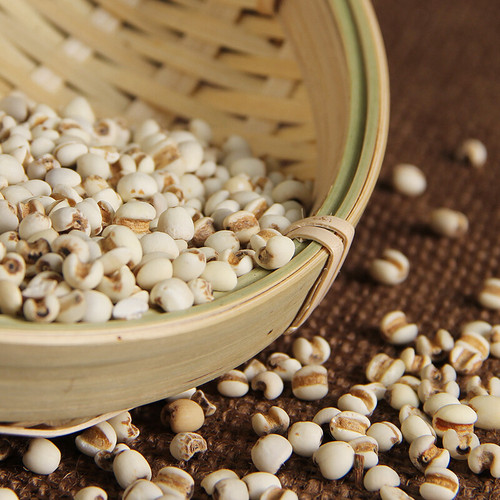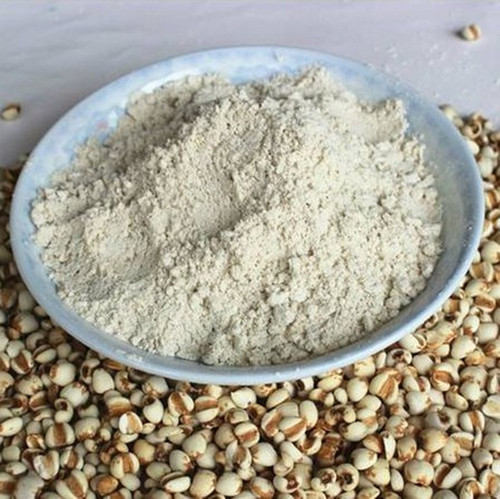Product Overview
Parts used: Dried ripe fruit
TCM category: Tonic herbs for Yang Deficiency
TCM nature: Warm
TCM taste(s): Pungent
Meridian affinity: Spleen Kidney
Scientific name: Alpinia oxyphylla
Other names: Sharpleaf Galangal Fruit
Use of sharp-leaf galangal fruits (Yi Zhi Ren) in TCM
Please note that you should never self-prescribe TCM ingredients. A TCM ingredient is almost never eaten on its own but as part of a formula containing several ingredients that act together. Please consult a professional TCM practitionner, they will be best able to guide you.
Preparation: Harvest the fruit when ripe, remove the seed and dry.
Dosage: 3-9 g
Main actions according to TCM*: Tonifies Kidney Yang and consolidates Kidney Qi. Warms the Spleen and stops diarrhea and salivation.
Primary conditions or symptoms for which sharp-leaf galangal fruits may be prescribed by TCM doctors*: Diarrhea Abdominal pain Enuresis Spermatorrhea Urinary incontinence
Contraindications*: Not for symptoms of vomiting, diarrhea and frequent urination caused by Internal Heat.
Common TCM formulas in which sharp-leaf galangal fruits are used*:
For symptoms of abdominal pain, nausea and vomiting combine sharp-leaf galangal fruits with codonopsis roots (Dang Shen), atractylodes rhizomes (Bai Shu) and dried ginger (Gan Jiang).
For diarrhea and excessive salivation or drooling caused by Spleen Deficiency combine sharp-leaf galangal fruits with codonopsis roots (Dang Shen), poria-cocos mushrooms (Fu Ling), crow-dipper rhizomes (Ban Xia) and dried ginger (Gan Jiang).
For Kidney Deficiency with nocturnal urination and seminal emissions combine sharp-leaf galangal fruits with yam (Shan Yao) and lindera roots (Wu Yao).
Key TCM concepts behind sharp-leaf galangal fruits (Yi Zhi Ren)'s properties
In Traditional Chinese Medicine (TCM), sharp-leaf galangal fruits are plants that belong to the 'Tonic herbs for Yang Deficiency' category. Tonic herbs are used for patterns of Deficiency, when one lacks one of the 'Four Treasures' (Qi, Blood, Yin and Yang). Yang Tonics are generally used in combination with a small amount of Yin tonics. If Yin is deficient, neither Qi nor Yang herbs alone will be effective. The most common symptoms associated with Yang Deficiency are low libido and impotence. It is worth mentioning that another very effective remedy against Yang Deficiency is regular exercise.
Furthermore sharp-leaf galangal fruits are plants that are Warm in nature. This means that sharp-leaf galangal fruits tend to help people who have too much "cold" in their body, although with less effect than a plant that would be Hot in nature. Balance between Yin and Yang is a key health concept in TCM. Those who have too much cold in their body are said to either have a Yin excess (because Yin is Cold in nature) or a Yang deficiency (Yang is Hot in Nature). Depending on your condition sharp-leaf galangal fruits can help restore a harmonious balance between Yin and Yang.
Sharp-leaf galangal fruits also taste Pungent. The so-called "five elements" theory in Chinese Medicine states that the taste of TCM ingredients is a key determinant of their action in the body. Pungent ingredients like sharp-leaf galangal fruits tend to promote the circulations of Qi and body fluids. That's why for instance someone tends to sweat a lot when they eat spicy/pungent food.
The tastes of ingredients in TCM also determine what organs and meridians they target. As such sharp-leaf galangal fruits are thought to target the Spleen and the Kidney. In TCM the Spleen assists with digestion, blood coagulation and fluid metabolism in the body. The Kidneys do not only regulate the urinary system but also play a key role in the reproductive system and the growth and aging process of the body.
Use of sharp-leaf galangal fruits (Yi Zhi Ren) as food
Sharp-leaf galangal fruits are also eaten as food.










